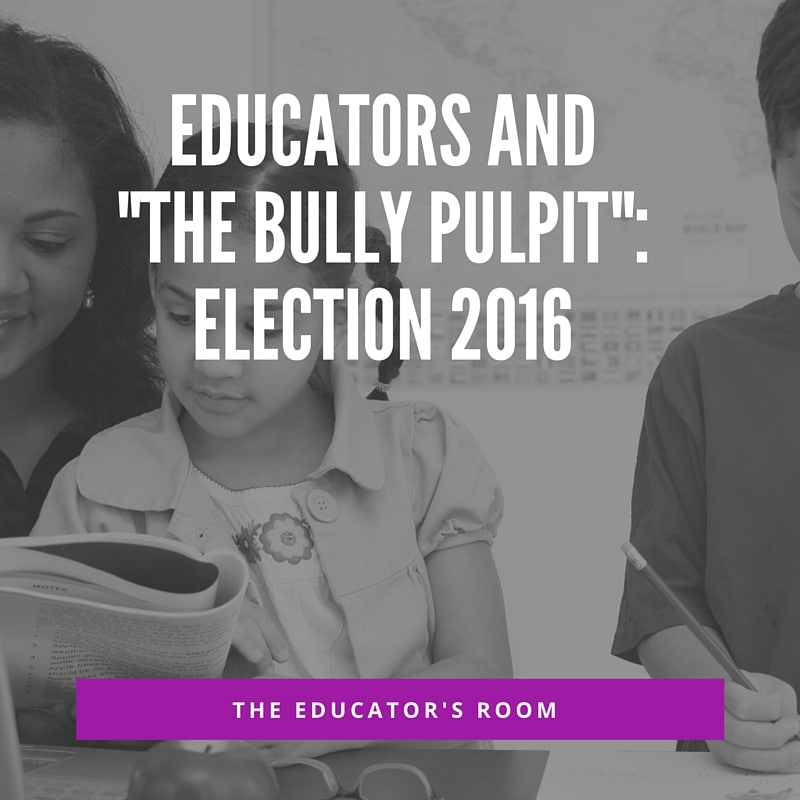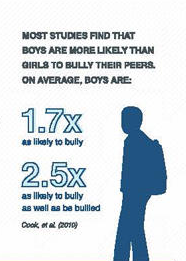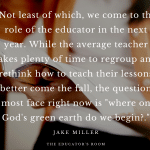“dope”
“fat”
“stupid”
Those are “bullying” words that an educator in a school is trained to listen for and respond to in most states
by law. In my
State of Connecticut the law is specific and:
“Requires that school personnel report, in a timely and responsive manner, incidents of bullying they witness or are aware of to a designated official” (see
Public Act No. 11-232).
As a result, I am hyper-sensitive to listening for bullying words or bullying attitudes. This hyper-sensitivity is making the 2016 Presidential Election Season hard on my educator’s sense of hearing. I am hearing lots of bullying.
Bully Meaning
The word bully did not always have a negative meaning, in fact, it’s origin (1530) is in the word “sweetheart”coming from the Dutch boel “lover; brother.”
According to the Online Etymology Dictionary, the meaning of the word bully deteriorated during the 17th Century from “fine fellow” and “blusterer” to “harasser of the weak”. The word did regain a more positive meaning in the 1860s in the United States when the expression “bully!” meant “worthy, jolly, admirable.”
It was with that positive sense that the term
Bully Pulpit was used to mean a public office or position of authority that provides its occupant with an outstanding opportunity to speak out on any issue. This was how President Theodore Roosevelt used the term his quote:
“I suppose my critics will call that preaching, but I have got such a bully pulpit!”
His use of the word bully was as an adjective meaning “first- rate,” or in 21st Century speak, “awesome.” The term
“bully pulpit” is still used today to describe a position of power to influence the public, and is one of the
key terms that students can learn about in studying the presidential election.
How to Teach this Presidential Election?
In this year’s presidential election season, the bully pulpit is getting a twice the workout…..it covers both the negative (harasser of the weak) and positive (awesome!) meanings.
But what does an educator do when the language of bullies is finding its way into the language of the presidential election campaign?
In 2016, social media, (Twitter, Facebook, Instagram, YouTube) increases opportunities for students to follow the candidates on the campaign trail….and the language they are hearing the candidates use is language that would land them in detention. Take for example these adjectives:
If the above examples of bullying language are creeping into the debates, into the interviews, and into campaign promotional materials, how will students interpret these words?
How then will students understand the difference between the language of bullies in school and the language of those who are campaigning to lead the country? What separates the two?
Bullying Resources
There are many different resources available to educators to help identify bullying language and prevent bullying.
In an effort to combat bullying, there are definitions on the site to identify verbal and social bullying:
Verbal bullying is saying or writing mean things including:
-
- Teasing
- Name-calling
- Inappropriate sexual comments
- Taunting
- Threatening to cause harm
Social bullying involves hurting someone’s reputation or relationships including
- Leaving someone out on purpose
- Telling other children not to be friends with someone
- Spreading rumors about someone
- Embarrassing someone in public
Another website,
Nobullying.com, notes that “Words and tone of voice are the first weapons in a bully’s arsenal.” They offer suggestions for students to
Deal with the Bully, including one suggestion that recommends removing attention:
Bullies love an audience only when the audience is made up of their admirers, who are usually even weaker than the bully. Without that admiring audience, the bully loses a great deal of power.
That particular piece of advice, however, may not be possible if the bullying language used by candidates on the campaign is proving successful as an opportunity to gain more public attention.
Not the First Campaign Insults
Many historians are quick to point out that the use of negative language has always been part of the American political process. In the election of 1800, the much venerated Thomas Jefferson accused the equally venerated John Adams of having,
“a hideous hermaphroditical character, which has neither the force and firmness of a man, nor the gentleness and sensibility of a woman”(
PBS American Experience).
In response, representatives from Adams’ camp claimed that Jefferson was,
“a mean-spirited, low-lived fellow, the son of a half-breed Indian squaw, sired by a Virginia mulatto father”(
PBS American Experience).
While both quotes would certainly qualify as inappropriate, and a bit startling for those who may idolize our Founding Fathers, their language is not the language of the today’s playground bully.
Difficult Election Season
Ironically, one of the suggestions offered on the
Stop Bullying website is that adults should act as models for students,
Kids learn from adults’ actions. By treating others with kindness and respect, adults show the kids in their lives that there is no place for bullying. Even if it seems like they are not paying attention, kids are watching how adults manage stress and conflict, as well as how they treat their friends, colleagues, and families.
[bctt tweet=”Unfortunately, many of the adult candidates engaged in the 2016 Election Season are proving to be poor role models. ” username=”EducatorsRoom”]
Unfortunately, many of the adult candidates engaged in the
2016 Election Season are proving to be poor role models. While they are seeking public office or a position of authority, the candidates occupy a multi-media platform of opportunity to speak out on any issue. Unlike the campaigns in 1800s, the contemporary insults (
“wet pants”) and attitudes (
“shut-up”) associated with bullying reaches a large audience. Today’s impressionable students will listen and learn from their behavior.
This election year, educators like me will have the difficult task trying to teaching students the differences between the bullies on the playground and the bullies on the pulpit.
[bctt tweet=”The difficult task trying to teaching students the differences between the bullies on the playground and the bullies on the pulpit” username=”EducatorsRoom”]
[/fusion_builder_column][/fusion_builder_row][/fusion_builder_container]










